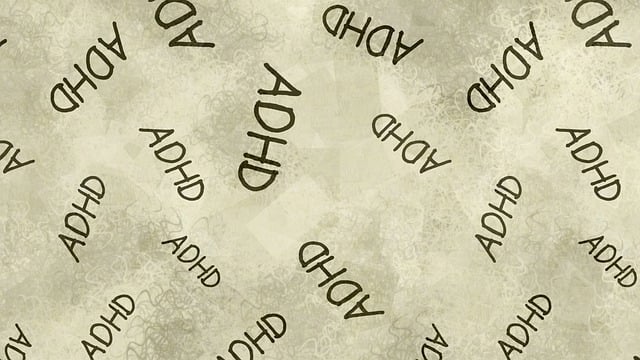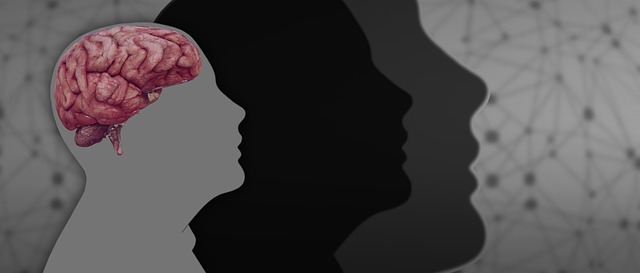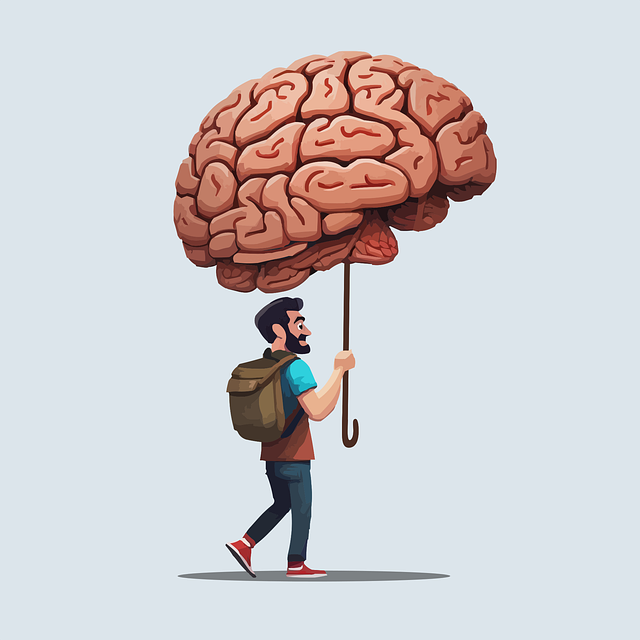Mental illness stigma, exacerbated by media portrayals and misunderstandings, leads to increased anxiety, isolation, and suicide rates. Englewood EMDR Certified Therapy combats this through evidence-based practices like Eye Movement Desensitization and Reprocessing (EMDR), fostering empathy, challenging misconceptions, and teaching emotional regulation skills. Educational initiatives, public awareness campaigns, and media representations that promote understanding are crucial in transforming societal perceptions of mental wellness, encouraging early intervention, and supporting individuals on their mental health journeys. Community engagement through programs like support groups and workshops further strengthens resilience and normalizes discussions around mental health.
Mental illness stigma remains a pervasive challenge, impacting individuals’ lives and hindering access to essential care. This article explores targeted efforts to reduce this barrier, from understanding its roots to implementing effective interventions. We delve into strategies such as Englewood EMDR Certified Therapy, which offers powerful tools for healing and empowerment. Additionally, we examine educational initiatives, media representation, and community engagement as vital components in challenging misconceptions and fostering empathy, ultimately paving the way for a more inclusive society.
- Understanding Mental Illness Stigma: Its Impact and Roots
- Englewood EMDR Certified Therapy: A Powerful Tool for Stigma Reduction
- Educational Initiatives: Challenging Misconceptions and Promoting Awareness
- Media Representation and its Role in Shifting Public Perception
- Community Engagement: Building Supportive Networks and Fostering Empathy
Understanding Mental Illness Stigma: Its Impact and Roots

Mental illness stigma is a pervasive issue that has far-reaching consequences for individuals affected by it. It stems from a lack of understanding and fear, often perpetuated by societal misconceptions and media portrayal. This stigma can manifest in various ways, from subtle discrimination to overt prejudice, creating barriers for those seeking help. The impact is profound, leading to increased anxiety, isolation, and even suicide rates among people with mental health challenges.
At its core, stigma arises from a place of misunderstanding. Many believe that mental illness is a sign of weakness or personal failure, when in reality, it’s a complex interplay of genetic, biological, environmental, and psychological factors. Englewood EMDR Certified Therapy emphasizes the importance of evidence-based practices to challenge these misconceptions and build empathy. By implementing effective empathy building strategies, reducing stigma can be achieved. Moreover, focusing on stress reduction methods and confidence boosting techniques empowers individuals to navigate their mental health journeys with resilience and support.
Englewood EMDR Certified Therapy: A Powerful Tool for Stigma Reduction

Englewood EMDR Certified Therapy offers a unique and highly effective approach to tackling mental illness stigma. By utilizing Eye Movement Desensitization and Reprocessing (EMDR) techniques, certified therapists help individuals process traumatic memories and negative beliefs associated with mental health conditions. This process empowers clients to reframe their perspectives, fostering understanding and empathy from both themselves and others.
Through EMDR therapy, patients learn powerful emotional regulation skills that enable them to manage distressing emotions and thoughts. By combining this with the principles of mind over matter, where individuals gain a deeper understanding of their thoughts and feelings, they can actively challenge societal stigmas. Englewood EMDR Certified Therapy thus equips people with coping mechanisms, building resilience against stigma and promoting a more compassionate society.
Educational Initiatives: Challenging Misconceptions and Promoting Awareness

Educational initiatives play a pivotal role in reducing the stigma surrounding mental illness by challenging deep-rooted misconceptions and promoting awareness. Schools, communities, and organizations are increasingly recognizing the importance of integrating mental health education into their curricula. These programs often focus on teaching empathy, fostering open conversations about emotional well-being, and normalizing discussions around therapy and mental health treatment. By demystifying mental illness, these initiatives aim to dispel harmful stereotypes and encourage early intervention and support-seeking behaviors.
Englewood EMDR Certified Therapy, for instance, is a therapeutic approach that has gained prominence in mental healthcare. It employs eye movement desensitization and reprocessing (EMDR) techniques to help individuals process traumatic memories and reduce symptoms of anxiety and depression. Such innovative stress reduction methods, coupled with cultural sensitivity in mental healthcare practice, can significantly impact how society views and treats mental wellness. Educating the public about these evidence-based practices ensures that individuals struggling with mental health issues receive the understanding and support they need to lead fulfilling lives.
Media Representation and its Role in Shifting Public Perception

The media plays a pivotal role in shaping public perceptions about mental illness. Historically, portrayals in film, television, and news have often perpetuated harmful stereotypes, contributing to the stigma surrounding mental health issues. However, there’s a growing trend towards more nuanced and empathetic representations, which can significantly impact how society views those struggling with their mental wellness. Positive media narratives featuring diverse characters receiving effective treatments, such as Englewood EMDR Certified Therapy, can foster understanding and encourage support for individuals seeking help.
By showcasing recovery stories and promoting open conversations about mental health, media platforms can shift the paradigm from stigmatization to empathy and acceptance. This change is crucial, especially in encouraging early intervention and preventing conditions like burnout among healthcare providers. It also informs public policy through a Mental Health Policy Analysis and Advocacy lens, leading to better allocation of resources for mental wellness programs, including development of effective Mental Wellness Coaching Programs.
Community Engagement: Building Supportive Networks and Fostering Empathy

In reducing mental illness stigma, community engagement plays a pivotal role. Building supportive networks within local communities can foster empathy and understanding, breaking down barriers often associated with mental health struggles. This involves organizing workshops, support groups, or awareness campaigns that encourage open conversations about mental wellness. Engaging in such initiatives allows individuals to share their stories, promoting a sense of belonging and normalizing discussions on mental health. For instance, certified EMDR therapy in Englewood has been instrumental in helping communities navigate trauma and enhance resilience, demonstrating the power of collective support.
Furthermore, community engagement strategies can incorporate therapeutic techniques like conflict resolution methods, mindfulness meditation, and confidence-boosting activities. These approaches not only empower individuals with coping skills but also strengthen interpersonal connections, creating a more supportive environment for those facing mental health challenges. By integrating these practices, communities can effectively reduce stigma, promote early intervention, and ensure long-term well-being for all members.
Mental illness stigma, a pervasive barrier to treatment and recovery, can be significantly reduced through multi-faceted efforts. By combining therapeutic approaches like Englewood EMDR Certified Therapy, educational initiatives targeting misconceptions, responsible media representation, and community engagement, we can create a more inclusive and empathetic society. These strategies, when implemented holistically, have the potential to revolutionize how mental health is perceived and supported, ultimately improving access to care for those in need.














